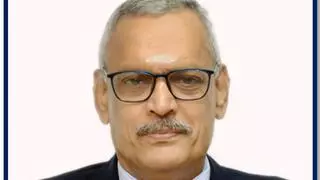Vodafone may get tax relief. This is going by the crux of the Parthasarathi Shome panel’s draft report on Retrospective Amendments Relating to Indirect Transfer.
The Committee’s report, made public on Tuesday, suggests that any taxation involving indirect transfer of assets located in India should be prospective and not retrospective.
Simply put, this could rule out the Revenue Department taking action against Vodafone on the basis of retrospective amendments to the Income-Tax Act.
Retrospective TAX
The report has said that even if the Government decides to go ahead with the retrospective application in taxing indirect transfers, only the party making capital gains from the transaction should be subjected to tax.
So, in the case of Vodafone’s acquisition of Hutchison Whampoa’s telecom assets in India in 2007, the retrospective tax, if any, should be levied on the latter and not on Vodafone.
The Shome Panel has made it clear that the retrospective provisions for taxation of indirect transfer, introduced in the Finance Act, 2012, are not clarificatory and instead would tend to widen the tax base.
This is in sharp contrast to the positions taken by the Government soon after the Budget.
The Shome Panel has said that no person should be treated as an assessee in default on tax withholding obligation or as a representative assessee of a non-resident in respect of a transfer transaction of shares of a foreign company with an underlying asset in India.
This is because any such move would amount to imposition of burden of impossibility of performance, the Shome Panel has said. The panel has also suggested exempting interest and penalty on cases where demand of tax is raised on account of retrospective amendment related to indirect transfer.
In the Finance Act, 2012, certain retrospective amendments were made to the Income-Tax Act, 1961. These were intended to clarify and restate the legislative intent of the source rule of taxation for non-residents in India.
In particular, they addressed situations where transfers of underlying assets in India took place exclusively between such non-residents — hence, indirectly. The relevant section 9 of the Act became effective retrospectively as of April 1, 1962.
FII investments
As for foreign institutional investors (FII), the Shome panel has advised the Government to clarify that the indirect transfer provision should not apply to a non-resident investor who has made an investment, directly or indirectly, in an FII. This should apply to investment made by an FII in India.
Also, the panel wants the Government to clarify that the Participatory Note (PN) holder will not be subjected to tax.








Comments
Comments have to be in English, and in full sentences. They cannot be abusive or personal. Please abide by our community guidelines for posting your comments.
We have migrated to a new commenting platform. If you are already a registered user of TheHindu Businessline and logged in, you may continue to engage with our articles. If you do not have an account please register and login to post comments. Users can access their older comments by logging into their accounts on Vuukle.